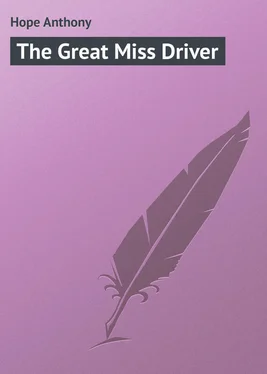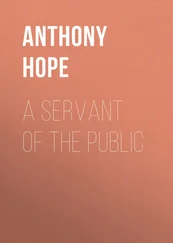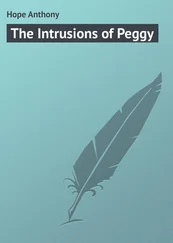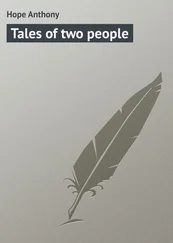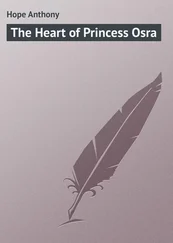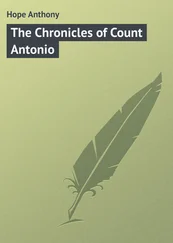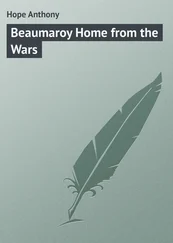Anthony Hope - The Great Miss Driver
Здесь есть возможность читать онлайн «Anthony Hope - The Great Miss Driver» — ознакомительный отрывок электронной книги совершенно бесплатно, а после прочтения отрывка купить полную версию. В некоторых случаях можно слушать аудио, скачать через торрент в формате fb2 и присутствует краткое содержание. Жанр: foreign_prose, на английском языке. Описание произведения, (предисловие) а так же отзывы посетителей доступны на портале библиотеки ЛибКат.
- Название:The Great Miss Driver
- Автор:
- Жанр:
- Год:неизвестен
- ISBN:нет данных
- Рейтинг книги:5 / 5. Голосов: 1
-
Избранное:Добавить в избранное
- Отзывы:
-
Ваша оценка:
- 100
- 1
- 2
- 3
- 4
- 5
The Great Miss Driver: краткое содержание, описание и аннотация
Предлагаем к чтению аннотацию, описание, краткое содержание или предисловие (зависит от того, что написал сам автор книги «The Great Miss Driver»). Если вы не нашли необходимую информацию о книге — напишите в комментариях, мы постараемся отыскать её.
The Great Miss Driver — читать онлайн ознакомительный отрывок
Ниже представлен текст книги, разбитый по страницам. Система сохранения места последней прочитанной страницы, позволяет с удобством читать онлайн бесплатно книгу «The Great Miss Driver», без необходимости каждый раз заново искать на чём Вы остановились. Поставьте закладку, и сможете в любой момент перейти на страницу, на которой закончили чтение.
Интервал:
Закладка:
According to Bindlecombe the only possible site for the visible realization of this splendid idea – the only site which the congested condition of the center of the borough allowed, and also the only one worthy of the great Institute – was the garden and grounds of Hatcham Ford. The beautiful old house itself was to be preserved as the center of an imposing group of handsome buildings; the old gardens need not be materially spoiled – so Bindlecombe unplausibly maintained. The flavor of antiquity and aristocracy thus imparted to the Institute would, Bindlecombe declared, give it a charm and a dignity beyond those possessed by any other Institute the world over. I was there when he first made this suggestion to Jenny. She looked at him in silence, smiled, and glanced quickly at me. The look, though quick, was audacious – under the circumstances.
"But what will Mr. Octon say to that?"
Bindlecombe deferentially hinted that he understood that Mr. Octon's lease of Hatcham Ford expired, or could be broken, in two or three years. He understood – perhaps he was wrong – that Mr. Driver usually reserved a power to break leases at the end of seven years? Mr. Cartmell would, of course, know all about that.
"Oh, if that's so," said Jenny, "of course it would be quite simple. Wouldn't it, Mr. Austin?"
"As simple as drawing a badger," I replied – and Bindlecombe looked surprised to hear such a sporting simile pass my lips. It was by no means a bad one, though, and Jenny rewarded it with a merry little nod.
At this point, then, her public project touched her private relations – and her relations with Octon had been close ever since her return from Paris. He had been a constant visitor at Breysgate, and my belief was that within a very few weeks of her arrival he had made a direct attack – had confronted her with a downright proposal – demand is a word which suits his method better – for her hand. I did not think that she had refused, I was sure that she had not accepted. She was fond of referring, in his presence, to the recent date of her father's death, to her own immersion in business, to the "strangeness" of her new life and the necessity of "finding her feet" before doing much. These references – rather pathetic and almost apologetic – Octon would receive with a frown of impatience – sometimes even of incredulity; but he did not make them an occasion of quarrel. He continued to come constantly to the Priory – certainly three or four times a week. There is no doubt that he was, in his way, very much in love with Jenny. It was an overbearing sort of way – but it had two great merits: it was resolute and it was disinterested. He was quite clear that he wanted her; it was quite clear that he did not care about her money, though he might envy her power. And if he tried to dominate her, he had to submit to constant proofs of her domination also. She could, and did, make him furiously angry; he was often undisguisedly impatient of her coynesses and her hesitations: but he could not leave her nor the hopes he had of her. And she, on her side, could not – at least did not – send him away. For that matter she never liked sending anybody away – not even Powers; it seemed to make her kingdom less by one – a change in quite the wrong direction. Octon would have been a great loss, for he had, without doubt, a strong, and an increasingly strong, attraction for her. She liked at least to play at being subjugated by his masculine force; she did, in fact, to a great extent approve and admire his semi-barbaric way (for her often mitigated by a humor which he kept for the people he liked) of speaking of and dealing with women. Down in her heart she thought that attitude rather the right thing in a man, and liked to think of it as a power before which she might yield. At the theater she was always delighted when the rebellious maiden or the charming spitfire of a wife, at last, in the third act, hailed the hero as her "master." So far she was primitive amidst all her subtlety. But to Jenny's mind it was by no means the third act yet; even the plot of the play was not laid out so far ahead as that. If this masterful, quick, assertive way of wooing were proper to man, woman had her weapons; she had her natural weapons, she had the weapons a civilized state of society gave her, and she had those which casual chance might add to her arsenal. Under the last of these three categories fell the project of the Driver Institute, to be established at Mr. Octon's present residence, Hatcham Ford.
It was a great chance for Jenny. Institutes as such, and all similar works, Octon hated – why educate people who ought to be driven? The insolence not of rank but of intellect spoke in him with a strong voice. Bindlecombe he hated, and it was mainly Bindlecombe's idea. Catsford he hated, because it was gradually but surely spreading to the gates of his beautiful old house. Deeper than this, he hated being under anybody's power; it was bitter to him that, when his mind was to stay, anybody – whether Jenny or another – should be able to tell him to go. Finally, his special position toward Jenny made the mere raising of the question of his future residence a rare chance for her – a chance of teasing and vexing, of coaxing and soothing, or of artful pretense that there was no underlying question at all.
She told him about the project – it was nothing more, she was careful to remark – after dinner one evening, in her most artless manner.
"It's a perfect idea – only I hope you wouldn't mind turning out?"
He had listened sullenly, pulling hard at his cigar. Chat was watching him with alarmed eyes; he had cast his spell on Chat, that was certain; there his boast did not go beyond truth.
"Being turned out, you mean, I imagine! I'd never willingly turn out to make room for any such nonsense. Of all the humbugs – "
"It's my duty to do something for the town," she urged – very grave.
"Let them do their work by day and drink their beer by night. Fancy those fellows in my house!"
"I'm sorry you feel like that. I thought you'd be interested – and – and I'd try to find you a house somewhere else. There must be some other houses, Mr. Austin?"
"One or two round about, I fancy," said I.
"Nice little ones – to suit a single man?" she asked, her bright eyes now seeking, now eluding, a meeting with his.
"I suppose I can choose the size of my house for myself," Octon growled. "I don't want Austin's advice about it."
"Oh, it wasn't poor Mr. Austin who – who spoke about the size of the house." A sudden thought seemed to strike her. "You might stay on and be something in the Institute!"
"I'd burn the house over my head sooner."
"Burn my pretty house! Oh, Mr. Octon! I should be so hurt – and you'd be sent to prison! What a lot of police it would need to take you there!"
The last sentence mollified him – and it was clever of her to know that it would. He had his primitive side, too. He was primitive enough to love a compliment to his muscles.
"I'd be out of the country before they came – with you under my arm," he said, with a laugh.
"That would be very forgiving – but hardly proper, would it, Chat? Unless we were – Oh, but what nonsense! Why don't you like my poor Institute?"
He relapsed into ill-humor, and it developed into downright rudeness.
"It's nothing to me how people make fools of themselves," he said.
Jenny did not always resent his rudeness. But she never compromised her right to resent it. She exercised the right now, rising with instantaneous dignity. "It's time for us to go, Chat. Mr. Austin, will you kindly look after Mr. Octon's comfort for the rest of the evening?" She swept out, Chat pattering after her in a hen-like flutter. Octon drank off his glass of wine with a muttered oath. Excellent as the port was, it seemed to do him no good. He leaned over to me – perfectly sober, be it understood (I never saw him affected by liquor), but desperately savage. "I won't stand that," he said. "If she sticks to that, I'll never come back to this house when I've walked out of it to-night."
Читать дальшеИнтервал:
Закладка:
Похожие книги на «The Great Miss Driver»
Представляем Вашему вниманию похожие книги на «The Great Miss Driver» списком для выбора. Мы отобрали схожую по названию и смыслу литературу в надежде предоставить читателям больше вариантов отыскать новые, интересные, ещё непрочитанные произведения.
Обсуждение, отзывы о книге «The Great Miss Driver» и просто собственные мнения читателей. Оставьте ваши комментарии, напишите, что Вы думаете о произведении, его смысле или главных героях. Укажите что конкретно понравилось, а что нет, и почему Вы так считаете.
